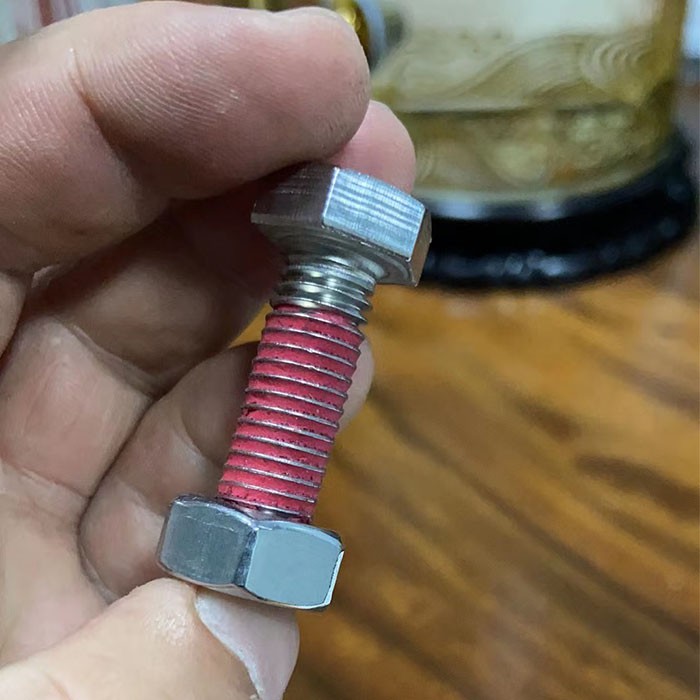
Nuts And Bolts Automotive
Nuts and bolts play a critical role in the automotive industry, providing the necessary strength, stability, and durability to keep vehicles operating safely and reliably.
- Product Introduction
The exact details and practices of nuts and bolts automotive may vary by vehicle manufacturer, regional standards, and engineering requirements. We can provide customized services to solve your concerns. Nuts and bolts are the unsung heroes of the automotive industry, playing a crucial role in holding vehicles together. From securing the engine to fastening body panels and interior components, these humble fasteners provide the strength, stability, and durability required to ensure safe and reliable operation on the roads.
Types of Fasteners:
Fasteners used in automotive applications come in various forms, each serving a specific purpose. Let's explore some common types:
- Bolts: Bolts are threaded rods with a head on one end and threads on the other. They are typically used in conjunction with nuts to secure components together. Automotive bolts are manufactured in different sizes, lengths, and thread types to accommodate specific requirements.
- Nuts: Nuts are internally threaded components that mate with bolts. They come in different styles, such as hex nuts, flange nuts, and prevailing torque nuts. Hex nuts, also known as hexagonal nuts, are the most commonly used type in automotive applications.
- Screws: Screws are similar to bolts but often have different head shapes, such as Phillips, Torx, or Allen. They are typically used when securing components into pre-drilled or pre-tapped holes, such as attaching interior trim or fastening electrical components.
- Washers: Washers are flat, disk-shaped components placed under the head of a bolt or nut. They help distribute the load over a wider area, reducing the risk of damage to the fastened surfaces and improving the fastening's overall strength and stability.
- Rivets: Although not technically nuts and bolts, rivets are widely used in automotive manufacturing. They are permanent fasteners that secure two or more materials together by deforming the rivet body, creating a strong, reliable joint. Rivets are commonly used in body panel assembly and structural applications.
Materials and Coatings:
Automotive fasteners are manufactured using materials that offer high strength, durability, and resistance to corrosion. Commonly used materials include:
- Steel: Steel is the most prevalent material for automotive fasteners due to its excellent strength characteristics. High-strength steel alloys, such as alloy steel or carbon steel, are often used in critical applications where robustness is required.
- Stainless Steel: Stainless steel fasteners provide exceptional resistance to corrosion and are frequently used in areas where exposure to moisture or harsh environments is expected. They are commonly employed in exterior applications, such as attaching trim or body panels.
- Aluminum: Aluminum fasteners are used in specific automotive applications where weight reduction is crucial, such as in lightweight vehicle components. Aluminum provides good strength-to-weight ratio properties and corrosion resistance.
- Titanium: Titanium fasteners are exceptionally lightweight and offer excellent strength. They are commonly used in high-performance vehicles, where weight reduction is a priority without compromising on structural integrity.
Fasteners can also be coated to enhance their corrosion resistance. Common coatings include zinc plating, galvanizing, and organic coatings like phosphate or polymer coatings. These coatings create a barrier between the fastener and the environment, preventing corrosion and increasing the lifespan of the fastener.
Thread Types:
Automotive fasteners utilize different thread types, and the choice depends on factors such as regional standards, vehicle manufacturer preferences, and application requirements. Let's explore two common thread types:
- Metric Threads: Metric threads are the most prevalent in modern automotive manufacturing. They are measured in millimeters and are denoted by an "M" followed by a number indicating the nominal diameter. For example, an M8 bolt has an 8mm diameter. Metric threads offer precise, standardized dimensions, making them easier to work with during assembly and maintenance.
- Imperial Threads: Imperial threads, also known as inch threads, were more common in older vehicles but can still be found in some applications. They are measured in inches
Whether you're a car enthusiast, a professional in the automotive field, or just curious about the inner workings of a vehicle, Yugood will provide you with valuable insight into the details of automotive engineering. Our nuts and bolts automotive can be customized in style, material, thread, etc., so we are very confident to be your fastener supplier.

FAQ
Q: What types of nuts and bolts are used in cars?
Q: Are the car bolts thick or thin?
Hot Tags: nuts and bolts automotive, China nuts and bolts automotive manufacturers, suppliers, factory








